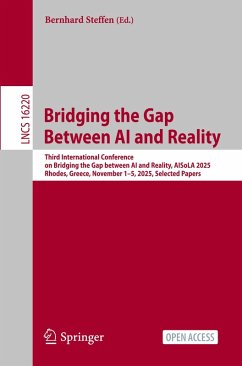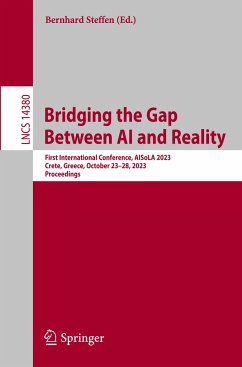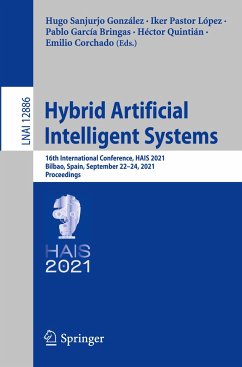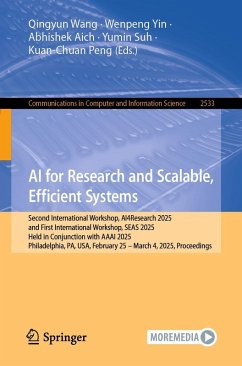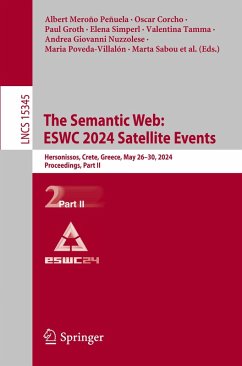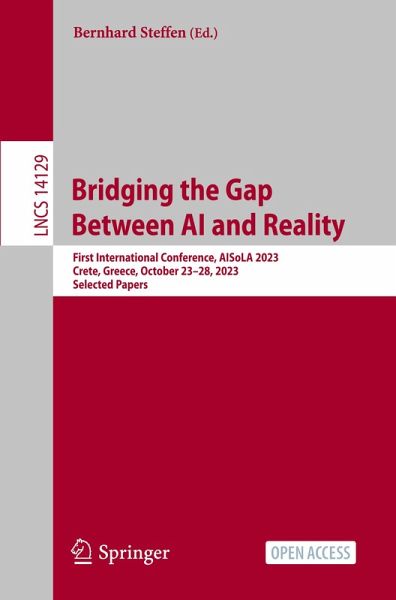
Bridging the Gap Between AI and Reality
First International Conference, AISoLA 2023, Crete, Greece, October 23-28, 2023, Selected Papers
Herausgegeben: Steffen, Bernhard
Versandkostenfrei!
Versandfertig in 6-10 Tagen
98,99 €
inkl. MwSt.

PAYBACK Punkte
49 °P sammeln!
This open access book constitutes revised selected papers from the First International Conference on Bridging the Gap between AI and Reality, AISoLA 2023, which took place in Crete, Greece, in October 2023.The papers included in this book focus on the following topics: The nature of AI-based systems; ethical, economic and legal implications of AI-systems in practice; ways to make controlled use of AI via the various kinds of formal methods-based validation techniques; dedicated applications scenarios which may allow certain levels of assistance; and education in times of deep learning.
This open access book constitutes revised selected papers from the First International Conference on Bridging the Gap between AI and Reality, AISoLA 2023, which took place in Crete, Greece, in October 2023.
The papers included in this book focus on the following topics: The nature of AI-based systems; ethical, economic and legal implications of AI-systems in practice; ways to make controlled use of AI via the various kinds of formal methods-based validation techniques; dedicated applications scenarios which may allow certain levels of assistance; and education in times of deep learning.
The papers included in this book focus on the following topics: The nature of AI-based systems; ethical, economic and legal implications of AI-systems in practice; ways to make controlled use of AI via the various kinds of formal methods-based validation techniques; dedicated applications scenarios which may allow certain levels of assistance; and education in times of deep learning.



